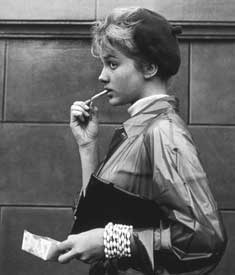[Addition: in many of the comments to said post, there is what amounts to a disparaging of reading as something not special, something "untimely" and impractical. But if that is how one feels, you've already played your hand as to whether people should be reading classic literature. If it is something to do with calculation, efficiency, maximized returns on one's time, and immediate relevancy, literature will lose every time. It is only when literature takes us outside of that part of our lives which does not have time for it, that we learn to make time for it.]
I worked at a bookstore all through high school, and last year, and this is what people buy (in Texas, at least):
- self-help books
- Christian self-help books
- cookbooks and bargain books
- NY Times-approved things like READING LOLITA IN TEHRAN
- Harry Potter books
- THE LIFE OF PI, BEE SEASON, WHITE TEETH, etc.
Still, I have to admit, in New York people *do* read more than anywhere else. Case in point: hipster folk band Effi Briest. In any other town, Rainer Maria (qua reference) is probably over people's heads...much less a novel by the mega obscure Theodor Fontane.
Eventually I am going to write something about philosophy and reading on my other blog, but I do believe that reading is (or can be/should be) thinking, and that there is no substitution for it, and that learning is not valuable despite the time it takes, but because of the time it takes: the inefficient, the inconvenient, are so for a reason--"consumption" is alien to the lasting qualities of these works. (Take Dickens for instance; the idea that Dickens is stuffy or hard or anything but pure entertainment would have been laughable a hundred years ago: that he has become so seems not co-incidental.)
I do not understand someone wanting to finish (be "done with") Proust, Milton, Sterne... don't you just want these things to keep going?


1 comment:
I understand there is a certain, "Oh, why aren't poor, overworked people reading Henry James?", raising-back-of-hand-to-forehead and sighing quality to this, but I hope you'll take it all in good faith.
Post a Comment